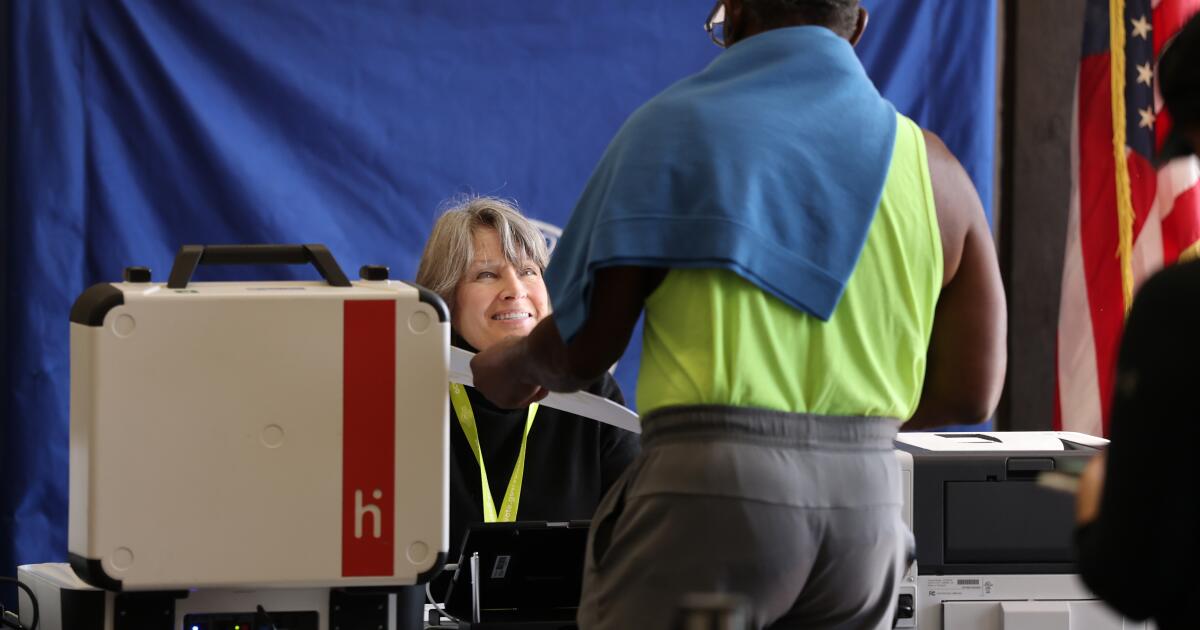State GOP seeks Supreme Court injunction to block California’s new, voter-approved congressional districts
The state Republican party on Tuesday filed an emergency application asking the U.S. Supreme Court to issue an injunction to stop the congressional districts California voters approved last year from going into effect.
Arguing that the districts created by Proposition 50 violate federal law because the race of voters was considered when they were configured, the filing urges the court to act by Feb. 9 because of ensuing deadlines for candidates to file to run for office.
“Our emergency application asks the Supreme Court to put the brakes on Prop. 50 now, before the Democrats try to run out the clock and force candidates and voters to live with unconstitutional congressional districts,” state GOP chairwoman Corrin Rankin said in a statement. “Californians deserve fair districts and clean elections, not a backroom redraw that picks winners and losers based on race.”
A spokesperson for Gov. Gavin Newsom, who led the rare middecade redistricting effort and is one of the respondents in the lawsuit, did not immediately respond to a request for coverage.
The redrawing of congressional districts typically occurs once a decade, after the U.S. Census, to account for population shifts. In California, the boundaries are drawn by a voter-approved independent commission to stop partisan gerrymandering and incumbent protection.
After President Trump urged leaders in Texas and other GOP-led states to redraw their delegation’s districts to boost the number of Republican elected to Congress in the November mid-term election, Newsom and other Democratic leaders responded by crafting a plan to increase the number of their party’s members in the California delegation to the U.S. House of Representatives. Republicans currently have a razor-thin majority, and the party that controls Congress after the November election will determine whether Trump is able to continue enacting his agenda during his final two years in office.
California voters handily passed Proposition 50, one of the most expensive ballot measure campaign in state history. The state GOP and others immediately challenged the new districts, but earlier this month, two members of a three-judge federal panel rejected their claim that the district boundaries were drawn to illegally favor Latino voters.
